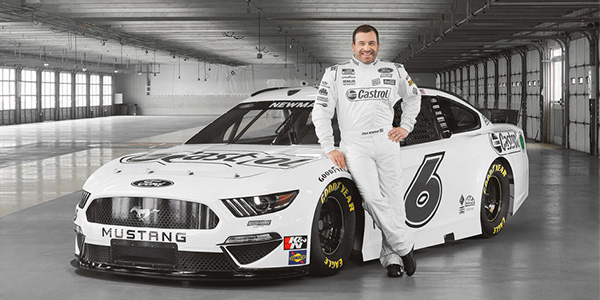Roush Fenway Racing is Driving to Neutral

What does it mean to be “carbon neutral”?
You may have seen in the news this weekend that there is a NASCAR team that has reached carbon neutrality. Roush Fenway Racing announced that it has become the first carbon neutral racing team. That sounds good, but how can that be? We all know that those 750 horsepower engines are powered by fossil fuels, drivers fly into races on private planes and helicopters and their big transport rigs travel all over the U.S. every weekend! So, what do they mean they are carbon neutral? The term carbon neutral defines a strategy or a plan to “neutralize” greenhouse gas (GHG) emissions. Roush Fenway and Castrol used an internationally recognized standard for carbon neutrality called the PAS 2060 Carbon Neutrality Specification. Following this standard will guide the racing team on how to reduce and off set carbon emissions. This helps us know that their carbon claims are credible.
Like many leading-edge companies that are addressing climate change, the racing team will have to combine energy efficiency, possibly fuel switching and purchase carbon offsets to achieve their carbon neutrality goal. They will have to reduce all possible emissions and impacts, that means they will have to do things like produce the energy they need at their operating facilities from carbon-free sources like solar power.
What are Carbon Offsets?
Racing teams will have to use carbon offsets to offset their carbon from burning fossil fuels. Carbon offsets are basically an attempt to compensate for your carbon emissions. When you purchase an airline ticket, you can “offset your carbon” by supporting a project that is increasing carbon storage through an activity like planting trees. There are also carbon credits, that can be transferred from one company to another that represents an emission reduction. The Roush Fenway announcement did not detail how they have become carbon neutral, but as this practice becomes more common, teams will share their knowledge and best practices with others in the industry. Soon, more teams will become carbon neutral and they will begin to complete for who is doing the best job. This is called benchmarking. It’s healthy competition within the industry.
Why are fossil fuels a problem anyway?
Fossil fuels come from decomposed plant matter which eventually forms into petroleum, hydrocarbons and coal. That process takes millions of years and is therefore considered non-renewable. When fossil fuels are burned, they release carbon dioxide and other GHG and trap heat into our atmosphere, which contributes to global warming and climate change.
Congratulations!
So, as you watch this season of NASCAR, know that Roush Fenway Racing is pioneering a new strategy. That strategy relates to that ambiguous term: sustainability. They truly are working to sustain the ability to race. In a carbon free society, a fossil fuel driven activity like stock car racing could be outlawed, and tracks could lose their authority to operate, meaning, they can’t race. What would happen to all those adrenalin junkies that need motorsports in their lives? I shudder to think. Roush Fenway has embarked on this journey to demonstrate that all businesses can address climate challenges and promote a more sustainable future for all of us. Kudos Roush Fenway. I’ll be cheering for you on and off the track!

